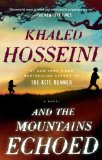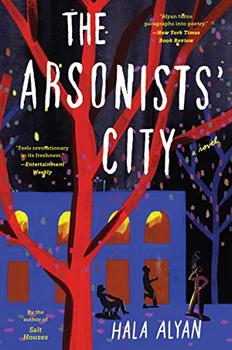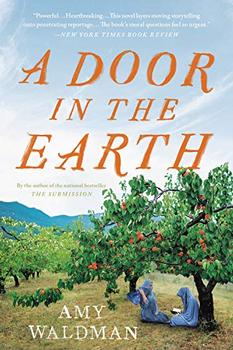Summary | Excerpt | Reading Guide | Reviews | Beyond the book | Read-Alikes | Genres & Themes | Author Bio

Khaled Hosseini's gorgeous new novel begins with a father telling his two children a heartbreaking Persian fable: A father must choose one of his five children to give to a malevolent demon or have all five taken from him. With its themes of sacrifice and betrayal, this fable sets the tone for the rest of the narrative.
And The Mountains Echoed spills over with unforgettable, fully realized characters whose stories are woven together into a tapestry, a stunning portrait of family dynamics. Threads of longing, envy, guilt, and betrayal twist together to form the warp of the tapestry with devotion, loyalty, and innocence forming the weft. These are the things that can cleave a family apart or bind it together. Taking place over a period of sixty-one years (from 1949 to 2010), and spanning many generations, some of the stories – not all – overlap the others.
The novel opens with the two children. Ten year-old Abdullah is devoted to his three year-old sister Pari, who has inherited their dead mother's cheerful and hopeful nature —the single light in their hardscrabble existence. But when betrayal cleaves the family apart, Abdullah is left with an empty ache that he will carry with him all his life. We meet Nabi, the children's uncle, who is infatuated by his employer's wife, Nila. Nabi will do anything, including betraying his own family, to please her. For her part, the beautiful, restless and unhappy Nila is a modern woman with a scandalous history whose husband cannot love her because he loves another.
Also part of the novel are cousins Idris and Timur, raised in America who have returned to their native Kabul for family business. Timur is charming but entitled, while Idris is an introvert who is haunted by the atrocities he sees. When he returns to his family in California, Idris is disgusted by his successful life and the life of privilege his children lead, raising the question: how do you straddle two worlds so different from each other? How do you live your own life when the lives of others are in such shambles?
Many other characters play a part including Thalia, whose face was mauled by her stepfather's vicious dog, and who must now learn to live with her scars; and Adel, who adores his father, believing he is a benevolent leader until he discovers his beloved father is a war criminal, a thug who uses his intimidating power to steal from the poor.
Hosseini dissects people's lives with compassion, rendering them as layered and complex in their heartbreaking imperfections. We come to see, as Nabi says, "that one is well served by a degree of both humility and charity when judging the inner workings of another person's heart."
Time shifts and leaps, forward and backwards, with large gaps as storylines are taken up by new players. But as one of the characters tells another, "A story is like a moving train: no matter where you hop onboard, you are bound to reach your destination sooner or later."
Even the voices vary. Part of this novel is narrated through an omniscient voice, and another is in first person. One character reveals himself through a letter, while we come to understand yet another character through an interview. And although some of the storylines wander off to Paris and California, India and Greece, most of it is set in Kabul, brought to vivid life in all its exotic beauty, devastation and poverty.
If every good novel has a question at its heart, the question posed here is: Why do we hurt each other? The answer, it seems, is that we are victims of our longings. As we read, we come to see how closely love, devotion, betrayal and jealousy are entwined.
Despite the sadness and suffering, the story ends on a bittersweet but hopeful note. Those looking for a linear, traditional plot may find this one challenging or even frustrating in its unusual structure, but many will agree that its exploration of weighty issues in a nuanced style, makes the book well worth the read. Adults and older teens who appreciate complex storytelling, and vivid and intriguing characters, will enjoy And the Mountains Echoed.
![]() This review was originally published in The BookBrowse Review in May 2013, and has been updated for the
June 2014 edition.
Click here to go to this issue.
This review was originally published in The BookBrowse Review in May 2013, and has been updated for the
June 2014 edition.
Click here to go to this issue.

If you liked And the Mountains Echoed, try these:

by Hala Alyan
Published 2022
A rich family story, a personal look at the legacy of war in the Middle East, and an indelible rendering of how we hold on to the people and places we call home.

by Amy Waldman
Published 2020
For readers of Cutting for Stone and The Reluctant Fundamentalist, a "breathtaking and achingly nuanced" (Kirkus, starred review) new novel from the author of the national bestseller The Submission about the journey of a young Afghan-American woman trapped between her ideals and the complicated truth.
Your guide toexceptional books
BookBrowse seeks out and recommends the best in contemporary fiction and nonfiction—books that not only engage and entertain but also deepen our understanding of ourselves and the world around us.